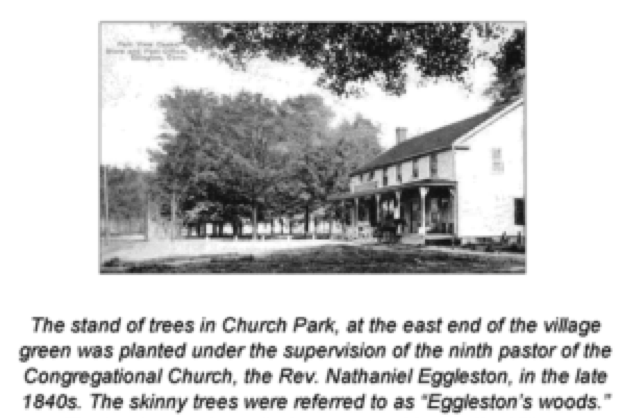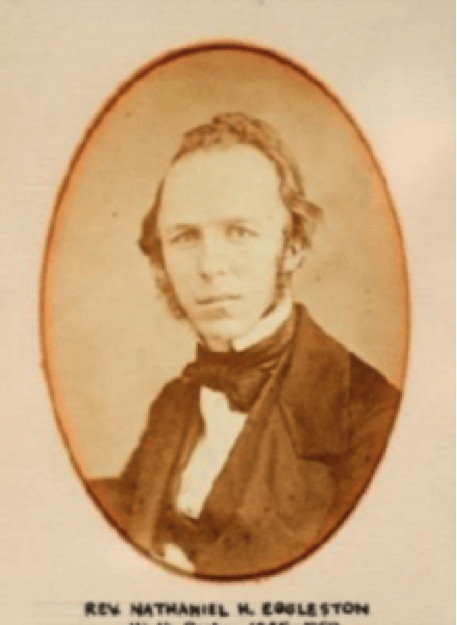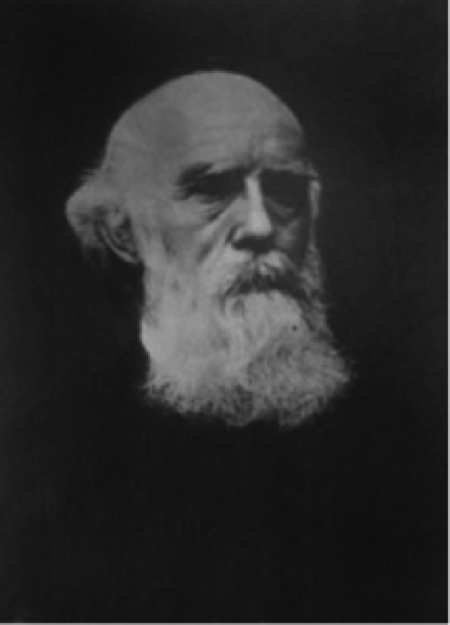Rev. Nathaniel Eggleston’s Woods
Nathaniel Hillyer Eggleston was born in Hartford, Connecticut, on May 7, 1822. Nathaniel is the nephew of my 5 great-grandparent Orrin Eggleston (1783-1870).
Nathaniel
graduated from Yale College in 1840 and Yale Seminary (now Yale Divinity
School) in 1843. He served as a Congregational pastor in Ellington (CT), New
York, Chicago, Madison (WI) and Stockbridge (MA) and was a founder of the
American Congregational Union and the Chicago Theological Seminary.
After many
years of leading a rapid westward expansion of congregational churches, Nathaniel’s
life took a remarkable turn when he went to Washington D.C. and was appointed
to be the second Chief of the U.S. Division of Forestry (1883-1886).
U.S. Forest History Society (edited) In 1893, U.S. Commissioner of Agriculture George Loring appointed
his friend Eggleston as chief of the Division of Forestry. Neither
suited for the job nor a strong administrator, Eggleston floundered as
chief but did offer some ideas that were later acted upon. In his first annual
report he suggested that the federal government should ensure that the
extensive federal forest lands in the public domain were properly cared for and
were used for the general welfare. He also recommended that the federal
government establish forest experiment stations.
The trees are
man’s best friends; but man has treated them as his enemies. The history of our
race may be said to be the history of warfare upon the tree world. But while
man has seemed to be the victor, his victories have brought upon him inevitable
disasters. Nathaniel Eggleston
A new
presidential administration in 1885 brought a new commissioner of agriculture,
Norman J. Colman. He did not ask for, nor did Eggleston volunteer to provide, a
plan for the division. Eggleston couldn’t even get a meeting appointment with
him. When Colman requested and received Eggleston’s resignation, he waited a
month before returning it to the chief. Eggleston spent the next year
“befuddled by indecision and uncertainty…meekly waiting to be fired.”
Eventually, he was demoted but contentedly stayed on as a clerk for the
next twelve years.
Gifford Pinchot, considered
by some to be the father of the American conservation movement, was less than
enthralled with Nathaniel and in his book Breaking New Ground, stated
(Eggleston) was “one of those failures in life whom the spoils system is
constantly catapulting into responsible positions.”
Amateur Hour: Nathaniel H. Eggleston and Professional
Forestry in Post–Civil War America
Religion in politics; a discourse to the congregational
church and society in Madison, Wisconsin


